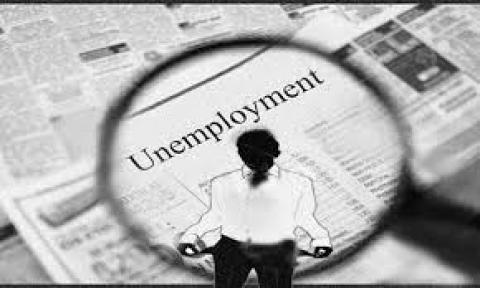Approaching risk of an ‘India Spring’ in autumn is why economic policies are needed that move away from the rigid nostrums and playbooks of North Block.
Those born into the certainty of wealth will usually not understand what takes place in the human mind as a consequence of a prolonged period of joblessness and the resulting absence of income. As the months and in short order years pass without a job becoming a part of everyday life, an individual begins to look inwards for reasons why he or she has failed to enter the ranks of those with an adequately remunerative position. Comparisons, silent or ( more cruelly) vocal that get made with childhood companions who have managed to “crack the code” and secure a job, push the unemployed youngster into a mood of self-doubt. Perhaps he or she just does not have what it takes to assume a responsibility that carries a salary. The next stage is to shun company, except perhaps those of others similar placed (or misplaced). When guests visit, the jobless person waits inside his room to avoid hearing the inevitable question: Has he found a job yet? That will be met with a silent shrug, thereby giving the answer. In a desperate search for an identity that may convey some shards of respect (and a rebirth of self-respect), many gravitate to organisations that thrive on street protests, and on the creation of situations such that publicity becomes inevitable. Whether such coverage be favourable or condemnatory is hardly important. What counts is that the individual within the group he has joined begins receiving public attention and no longer needs to avoid the pitying eyes of visitors or the growing irritation in the faces of family members unhappy that their usually meagre finances are being depleted rather than increased by an individual who after all has a call on shelter, on food and the occasional dole of money. An identity has once again come into being, to replace that lost on account of prolonged joblessness.
The 2011 Arab Spring was more an expression of increasing loss of hope at an end to the joblessness and poverty of certain countries than it was a movement formed to bring in democracy. Which is why the effect of the Arab Spring was almost non-existent in countries such as the UAE or Kuwait, where the state has provided its citizens with comfortable livelihoods. Or in Saudi Arabia, where most of the levers of activity are in the hands of expats, thereby severely limiting the ability of even disaffected sections of the local population to cause a political upheaval. Which is why a long-term downward trend
The approaching risk of an “India Spring”, this time in autumn, is why economic policies are needed that move away from the rigid nostrums and playbooks of North Block. Measures which focus only on FIIs and not on the population at large. Eventually, the reluctance to open the monetary and fiscal spigots sufficiently has led to both a reduction in ratings (by agencies that ought to be ignored rather than placed on the high pedestal of policy) as well as economic pain that has now spread to the middle classes. First incomes have declined and then jobs have disappeared. India could replace China as the manufactory of the world, but for that the economy needs to remain on its feet rather than stagger downwards. The weeks ahead will show whether Modinomics has finally prevailed over Babunomics, or whether the 1930s of Europe are in danger of making a fresh appearance, this time in India.

